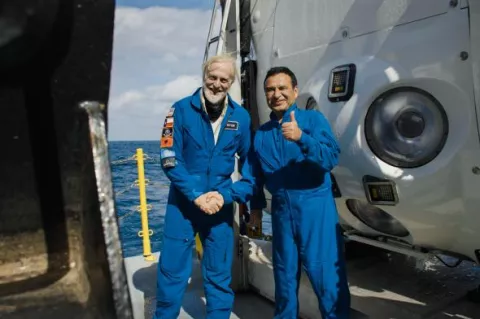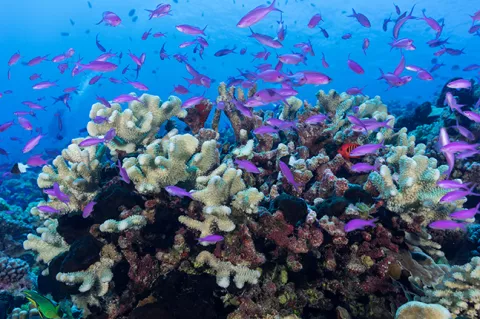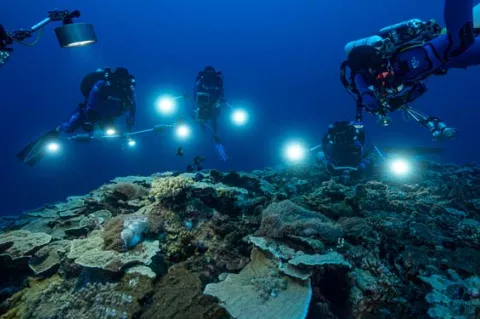First-ever crewed dive into Atacama Trench
On 21 January 2022, two men dived the first-ever crewed dive to the deepest point of the Atacama Trench, the deepest trench in the southeastern Pacific.
This feat saw explorer Victor Vescovo, Founder of Caladan Oceanic, and Osvaldo Ulloa from Instituto Milenio de Oceanografia (IMO) descending to 8,069m below sea level, in the submersible Limiting Factor. This dive was the first in the Chilean leg of the Ring of Fire Pt 2 (2022) expedition.







